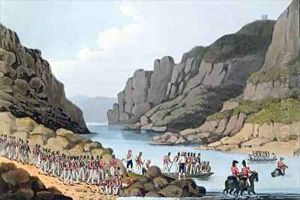Bradford, Rev. William Paintings
Rev. William Bradford was not an artist in the traditional sense of painters or sculptors, but rather a significant figure in American history, particularly noted for his leadership and literary contributions. Born in 1590 in Austerfield, Yorkshire, England, Bradford was a key figure among the Pilgrims, the group of English Puritan separatists who sought religious freedom in the New World. In 1620, Bradford was among the passengers on the Mayflower, which landed in what is now Massachusetts, where he would play a pivotal role in the establishment of Plymouth Colony. Upon the death of the colony's first governor, John Carver, in 1621, Bradford was elected to replace him, a position he would hold for nearly three decades, with some interruptions. His leadership was marked by a pragmatic and compassionate approach, navigating the colony through challenging times, including interactions with the local Native American tribes, managing the colony's finances, and ensuring its survival. Bradford's most significant contribution to literature and history is his journal, 'Of Plymouth Plantation,' which he began in 1630 and continued until 1657, the year of his death. This work is considered one of the most important early accounts of the settlement of New England, the Pilgrims' journey, and the early years of the Plymouth Colony. The journal provides invaluable insights into the Pilgrims' experiences, motivations, and the challenges they faced in the New World. Bradford's writing is noted for its clarity, detail, and thoughtful reflection, making it not only a key historical document but also a piece of literature that offers profound observations on human nature and society. William Bradford died in 1657 in Plymouth. His legacy, preserved through 'Of Plymouth Plantation,' remains a cornerstone of American history and literature, illuminating the early years of one of the first successful English settlements in North America. His leadership and writings have left an indelible mark on the understanding of this pivotal period in history.
